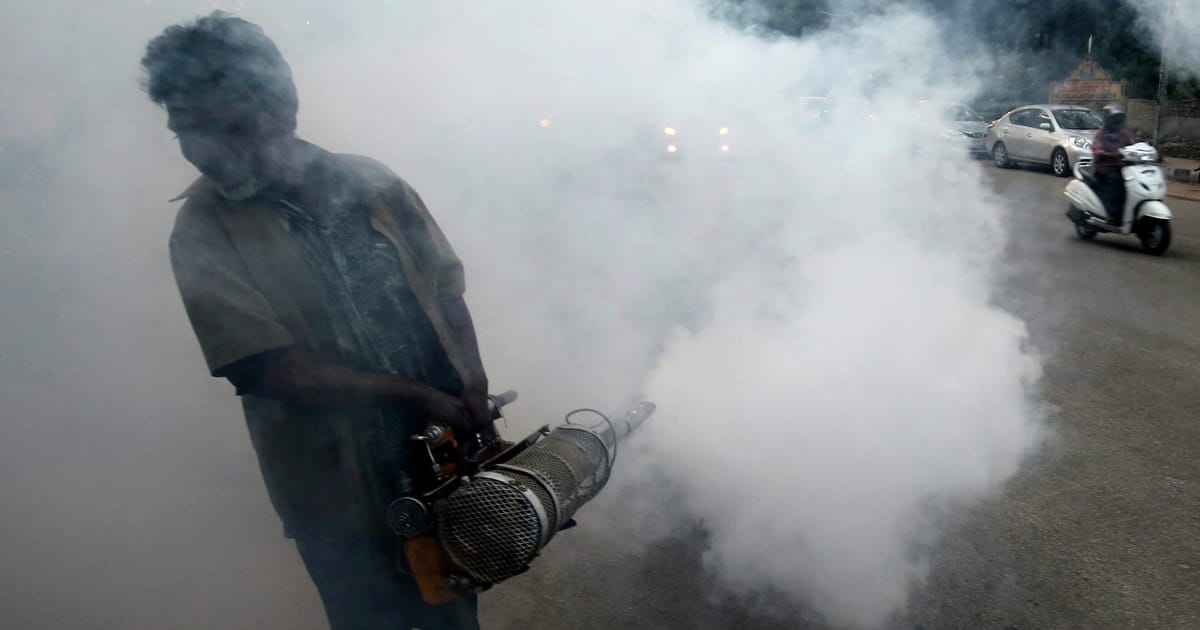There is currently no human vaccine for West Nile virus. There is, however, a vaccine available for horses and some are in development for birds.
Dengue and chikungunya
Dengue and chikungunya are not endemic to Europe, as they currently only manifest in the summer. These viruses are spread by infected Aedes albopictus, or Asian tiger mosquitoes, an invasive species in Europe, and host animals are not involved in the transmission cycle.
Dengue can cause flu-like symptoms, such as fever, headache, nausea, and joint and muscle pain. In severe cases, it can cause bleeding from the gums, abdominal pain and even death. The chances of developing severe dengue, and it turning hemorrhagic, are higher if someone has been infected more than once. It is particularly dangerous for older people, pregnant women, and children. However, mortality is low in Europe — there were no reported dengue deaths in 2024.
Chikungunya’s symptoms are similar to dengue’s, and include high fever, headache, nausea, rash, and muscle and joint pain. The word chikungunya comes from the Kimakonde language of southern Tanzania and means “that which bends up,” describing the way patients often double over from severe joint pain. Most people recover, although 30 to 40 percent of those affected develop chronic arthritis. It is particularly dangerous for older people, pregnant women, and children.
Most of the dengue and chikungunya cases reported in Europe are imported cases, meaning in people traveling back from areas with ongoing outbreaks, which can then be spread locally.
In 2025, major outbreaks have been ongoing in several Indian Ocean islands, including the French islands of La Réunion and Mayotte, as well as Mauritius. The virus is also spreading to Madagascar, Somalia and Kenya.
